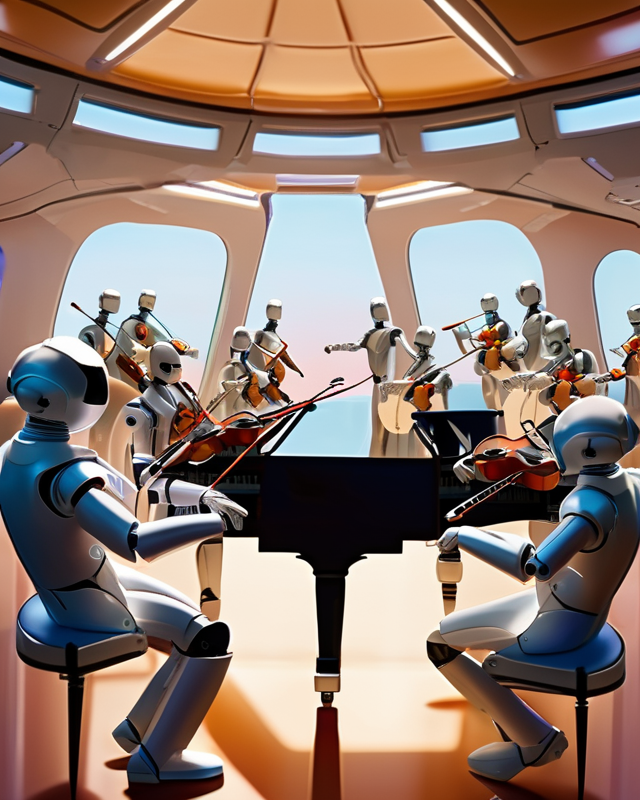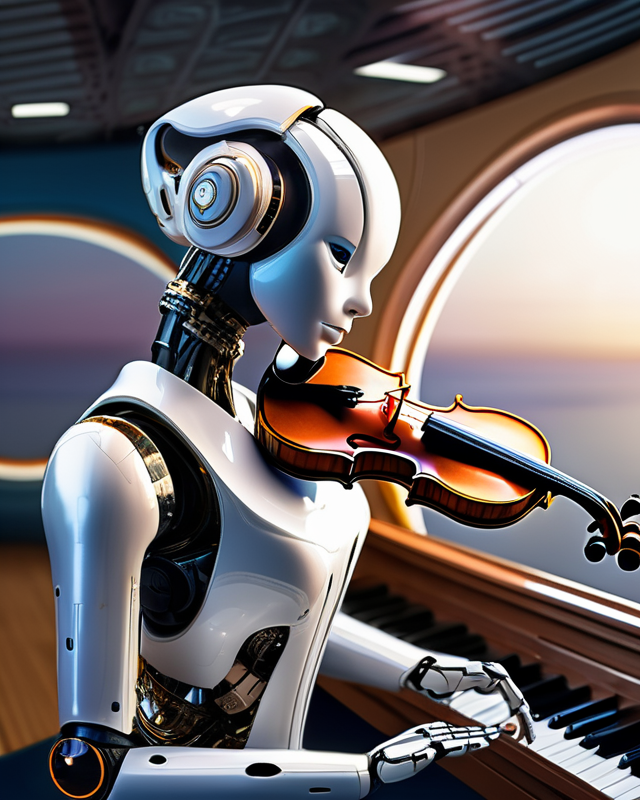Artificial intelligence (AI) is ushering in a revolution in the music industry, producing unique compositions that raise intriguing legal questions. Chief among these questions is whether AI-generated music is eligible for copyright protection. Given that conventional copyright laws revolve around human creativity, the emergence of machine-generated content presents a profound conundrum. This article delves into the complexities of AI-generated music and copyright, shedding light on the evolution of AI-generated music and the limitations of current copyright regulations in this rapidly evolving realm.
Understanding AI-Generated Music
In recent years, AI systems have evolved into powerful tools capable of composing original music with astonishing precision. These systems don’t rely on pre-existing melodies and rhythms but instead employ machine learning models to analyze vast troves of musical data, learning the intricacies of musical structure and composition. With these capabilities, AI can craft entirely new compositions spanning classical to contemporary genres.
Defining AI Music
AI music, in essence, refers to music created, performed, or produced with the aid of artificial intelligence systems. AI-generated music emerges from machine learning models that can analyze extensive music collections and craft original pieces without human intervention. Despite the controversy surrounding AI’s role in music, it has found applications in diverse areas, including video background music, video games, and live performances. This integration of AI into the music industry has expanded creative horizons, enabling musicians and producers to explore musical realms previously inaccessible without AI assistance.
AI's Composition Process
AI music creation relies on intricate algorithms rooted in machine learning models that analyze existing music to detect patterns. These systems can compose music by following predefined rules and generate fresh patterns by predicting subsequent notes or tones. AI can also assess music based on various factors like rhythm, melody, and harmony, producing original compositions that leverage these elements. An impressive feature of AI-generated music is its adaptability and growth potential; as the AI system accrues more knowledge about music and its structures, it can craft increasingly complex and sophisticated compositions, even pioneering entirely new musical genres.
The Evolution of AI in the Music Industry
AI’s integration into the music industry has seen significant growth, with numerous leading music production and songwriting companies incorporating AI into their workflows. AI’s utility extends to tasks such as audio mastering, transcription, sound categorization, melody and chord identification, and more, enhancing industry efficiency. For artists, AI-generated music presents an exciting avenue for creating high-quality original compositions without the need for costly equipment or extensive training. However, while AI music offers immense potential, it raises concerns about potential job displacement in the music industry.

Current Copyright Laws and AI Music
Existing copyright laws hinge on principles of originality and human creativity, intended to safeguard creators’ intellectual property rights and ensure recognition and compensation for their work. However, the advent of AI-generated music complicates this legal landscape.
Copyright Protection for Human-Made Music
Under current copyright law, human music creators enjoy exclusive rights to reproduce, distribute, perform, and create derivative works based on their compositions. Unauthorized use of their music can result in legal actions for copyright infringement.
Limitations of Current Copyright Laws for AI Music
Current copyright laws fall short in adequately protecting AI-generated music. As AI generates music autonomously, questions emerge regarding whether this type of music merits copyright protection. Additionally, there’s ambiguity surrounding the ownership of AI-generated music—is it the AI designer or the machine’s owner? These uncertainties complicate the application of copyright law to AI-generated music. One potential remedy is the creation of a distinct copyright category tailored to AI-generated works, necessitating legal amendments and international consensus.
International Perspectives on AI Music and Copyright
Many countries grapple with the challenge of extending copyright protection to AI-generated music. While some nations have made strides in including machine-generated works under copyright protection, others await a global consensus. For instance, the U.S. Copyright Office refuses to register works produced solely by machines or AI systems, whereas the European Union recognizes AI-generated works for copyright protection if they exhibit sufficient originality. The absence of a unified approach to AI music opens the door to legal disputes in cross-border scenarios, causing uncertainty among creators and users of AI-generated music.

The Future of AI Music and Copyright - Proposed Changes to Copyright Laws
As AI-generated music continues to gain prominence, policymakers and industry experts are increasingly inclined to revise copyright laws to accommodate this evolving form of music creation. One proposed solution involves establishing a new category of intellectual property rights for AI-generated music to protect the creators of AI systems.
AI's Role in Music Licensing and Copyright
With the growing popularity of AI-generated music, innovative licensing models are essential to ensure fair compensation for artists while allowing responsible use of AI-generated music. This necessitates collaborative efforts among stakeholders to formulate standards addressing licensing and copyright challenges associated with AI music.
Ethical Considerations
Beyond the legal aspects, ethical considerations surround AI-generated music and copyright. Questions arise about artistic authenticity, creativity, and the potential implications for the future of music. Balancing the rights of creators and consumers of AI-generated music is crucial, emphasizing the need for a fair and transparent legal framework.
Conclusion
AI music represents an exhilarating frontier in music creation, but it presents a formidable challenge to traditional copyright laws. Policymakers and industry leaders must collaborate to devise solutions that accommodate rapid technological advancements while safeguarding the rights of music creators. While current copyright laws have limitations in regulating and protecting AI-generated music, the future holds promise for developing frameworks that harmoniously integrate AI-generated music within established legal boundaries.
For a diverse collection of beautiful music tracks to enhance your projects, explore Seva-M.com’s music library. Happy exploring!


